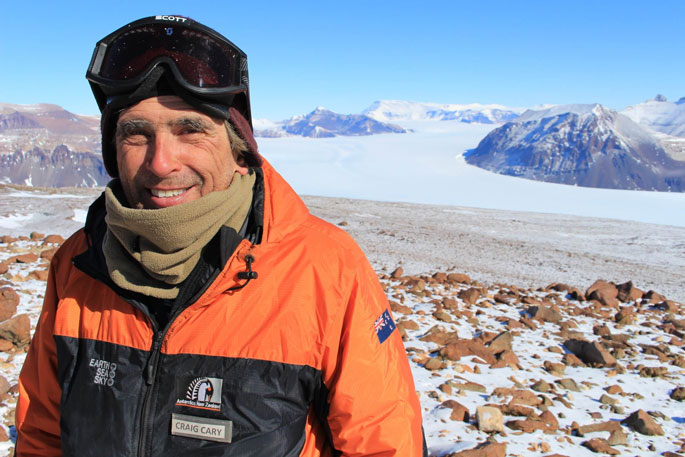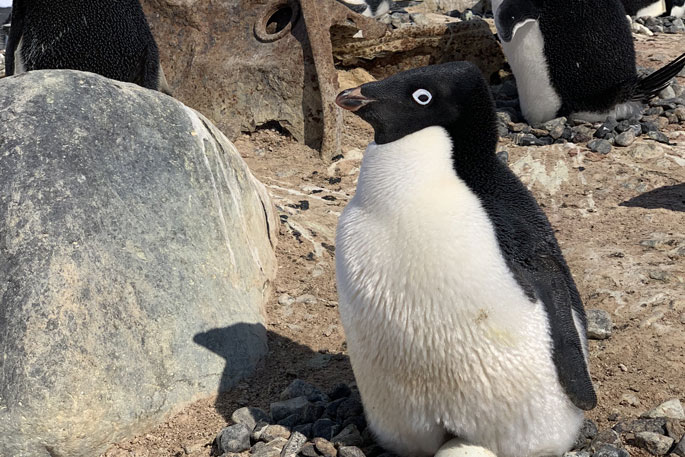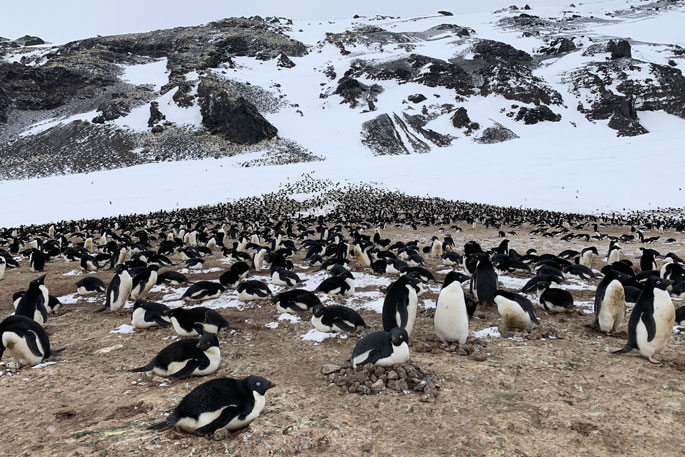The first baseline survey in Antarctica will aid detection of H5N1 – the highly contagious avian influenza or bird flu.
The survey is a rapid response that will be key to slowing the disease and any cross species infection on the icy continent.
June 2022 scientists sounded the alarm of an impending threat to Antarctic penguins. Modelling indicated a likely arrival by 2024, in infected migratory birds like skua.
The virus has the potential to seriously undermine Antarctic ecosystems that are already under stress from climate change.
With support from The University of Waikato Environmental Research Institute and Antarctica New Zealand, University of Waikato Professor Craig Cary has been spending part of his 2022/23 Antarctic research trip trekking around a penguin colony, collecting poo samples.
 Professor Craig Cary.
Professor Craig Cary.
'Skua arrival at Cape Adare coincides with penguin breeding season and the Cape is home to one of the largest Adelie penguin breeding areas in the world,” Professor Cary says.
'The virus spreads through contact with infected individuals and poo, making the colony high risk.”
Professor Cary, a microbial ecologist, Director of the ternational Centre for Terrestrial Antarctic Research and ERI steering group member, has extensive experience of Antarctica, where he has studied microbial communities in soil, ice, and penguin guano (poo).
'There is significant risk here, so I contacted Antarctica New Zealand. They listened to the science and identified an opportunity for me to join a team headed to Cape Adare.”
Professor Cary monitored the Adelie penguin colony and detected no dead birds or symptomatic behaviours. He collected 100 poo samples which are now in a freezer in his lab, awaiting analysis.
He cautions that this is only one survey of one colony and many more need monitoring. 'My hope is to initiate an international effort involving all the Antarctic National Programmes in the Ross Sea region to collectively visit, observe and sample select colonies so that we get the coverage needed.”
 A nestling Adelie Penguin. Photo: Craig Cary.
A nestling Adelie Penguin. Photo: Craig Cary.
There are a variety of mitigation solutions being explored. These include existing and newly developed vaccines. 'Right now, we must be prepared for what is inevitable, and look at every possible mitigation strategy being used off-continent,” he says.



0 comments
Leave a Comment
You must be logged in to make a comment.